Forget about the iPhone 13 – it’s the iPad mini 2021 that stole the Apple event
Chalk up a win for small device lovers
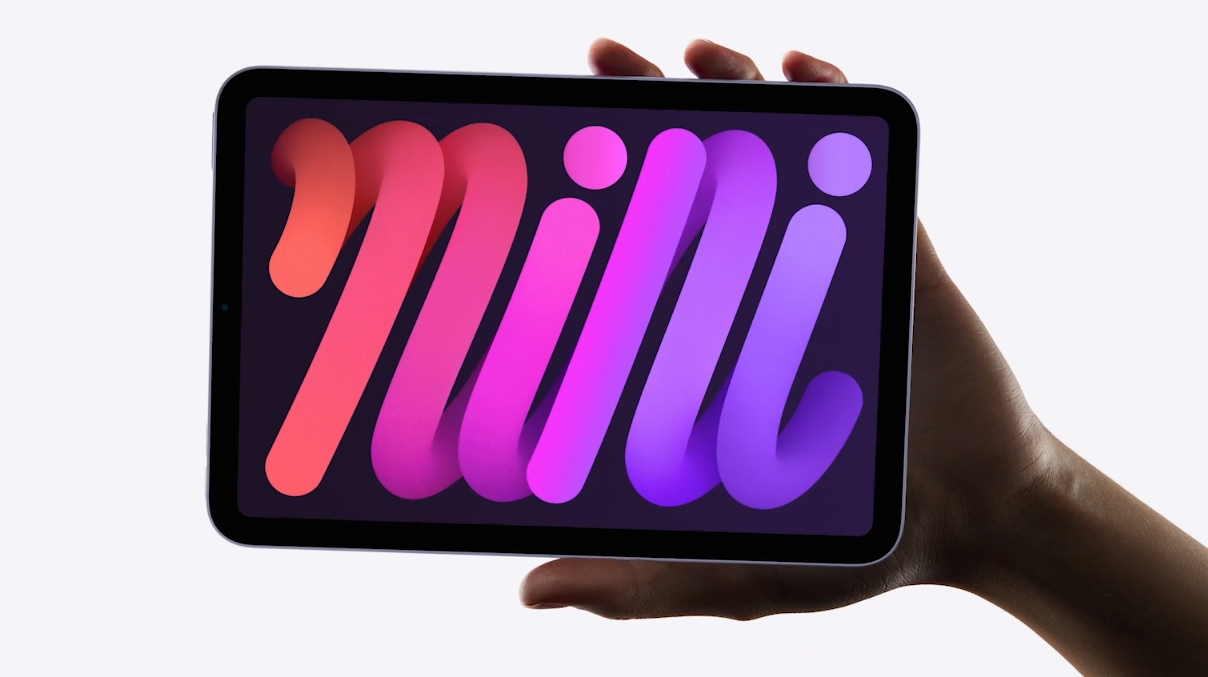
Apple’s September event was headlined by the iPhone 13 range, but the handsets’ incremental upgrades left me unimpressed. The real winner? The new iPad mini 2021 – and really, fans of small devices in general.
The iPhone 13 line is superior to its predecessors, but there aren’t many changes – a 20% smaller notch, slightly better battery, slightly brighter display, bigger light sensors in the rear cameras, a new Cinematic Mode for focus adjusting while recording video, and so on. Improvements, but small ones. The iPad mini 2021, on the other hand, has plenty of big upgrades, making it a wildly better device.
Starting in 2012, we got a new version of the iPad mini every year until 2015, when a four-year gap had us believing that Apple had abandoned its small-format tablet. A new model came out in 2019, but it wasn’t clear if we’d get another. Thankfully, we have, and all its upgrades make it a veritable tiny iPad Air 4.
Why? Because the iPad Air 4, released in 2020, launched as a powerhouse that gave the iPad Pro 2021 a run for its money with more speed and features at a price ($599 / £579 / AU$899) that made it a high-value alternative if you didn’t need the absolute best tablet and wanted to save money.
Similarly, the new iPad mini 2021 improves so much on its predecessor that it’s a tiny workhorse in the making, that’s even more affordable than the iPad Air 4 with a starting price of $499 / £479 / $749 (for 64GB and WiFi only). Even better, the new iPad mini got a visual makeover, getting the flat edges of the recent iPad Air and iPad Pro models along with the iPhone 13.
Given how long the last curved-bottom design lasted for the iPad mini, and the work to reformat production lines for a wholly new flat-edged design, it seems Apple is more committed to continuing small-format tablets in the future. That’s encouraging given how unclear it’s been whether the company wants to keep its other intentionally diminutive devices around. We saw a new iPhone 13 mini, of course, but sales of the iPhone 12 mini were so weak that a rumor suggested Apple would stop production of the small phone.
In short, one of Apple’s most powerful tablets is small, and we think there’s plenty of folks who are excited by that. Let’s review the five best new things about the iPad mini 2021:
Get daily insight, inspiration and deals in your inbox
Sign up for breaking news, reviews, opinion, top tech deals, and more.
- See the iPhone 13 deals that have been announced so far in the US
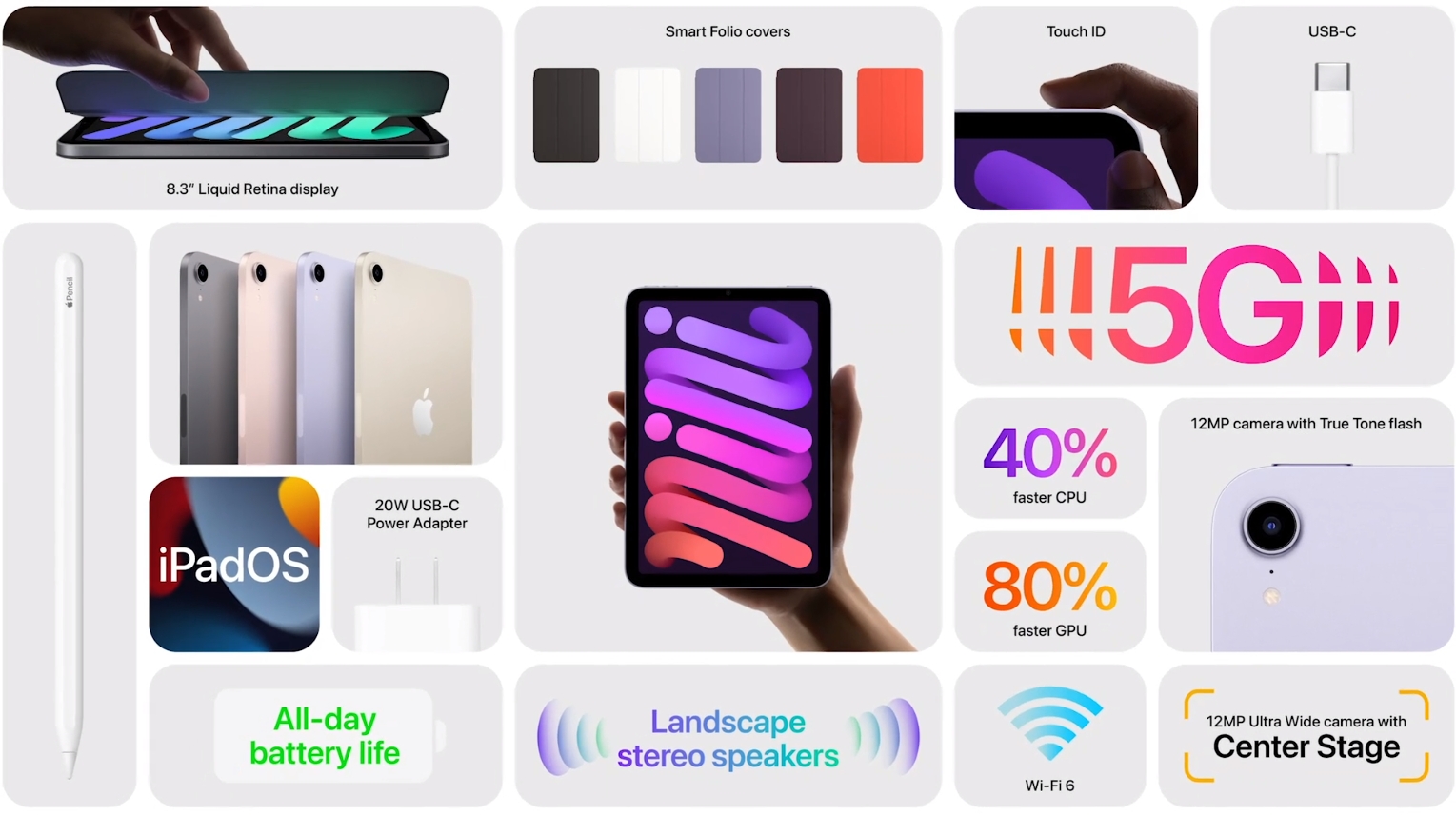
Design overhaul – with new perks
Yes, we already talked about the redesign to squared-off edges, but there are several other improvements to the design. The iPad mini follows the iPad Air 4 and iPad Pro in ditching the Lightning port for a USB-C port, enabling faster charging and data transmission speeds (as well as compatibility with all the USB-C plugs in the wild). Like the iPad Air, the iPad mini has ditched its Home button and moved its Touch ID fingerprint sensor to the lock button.
On top of that, the stereo speakers have been switched around from both coming out of the bottom, to one each on the top and bottom, which makes it easier to listen from different angles. The tablet is compatible with the Apple Pencil 2, and even has a magnetic mount to clip and recharge the accessory.
And perhaps best of all, the iPad mini 2021 doesn’t just come in Space Gray and the cream white Starlight colors – it also comes in pink and purple.
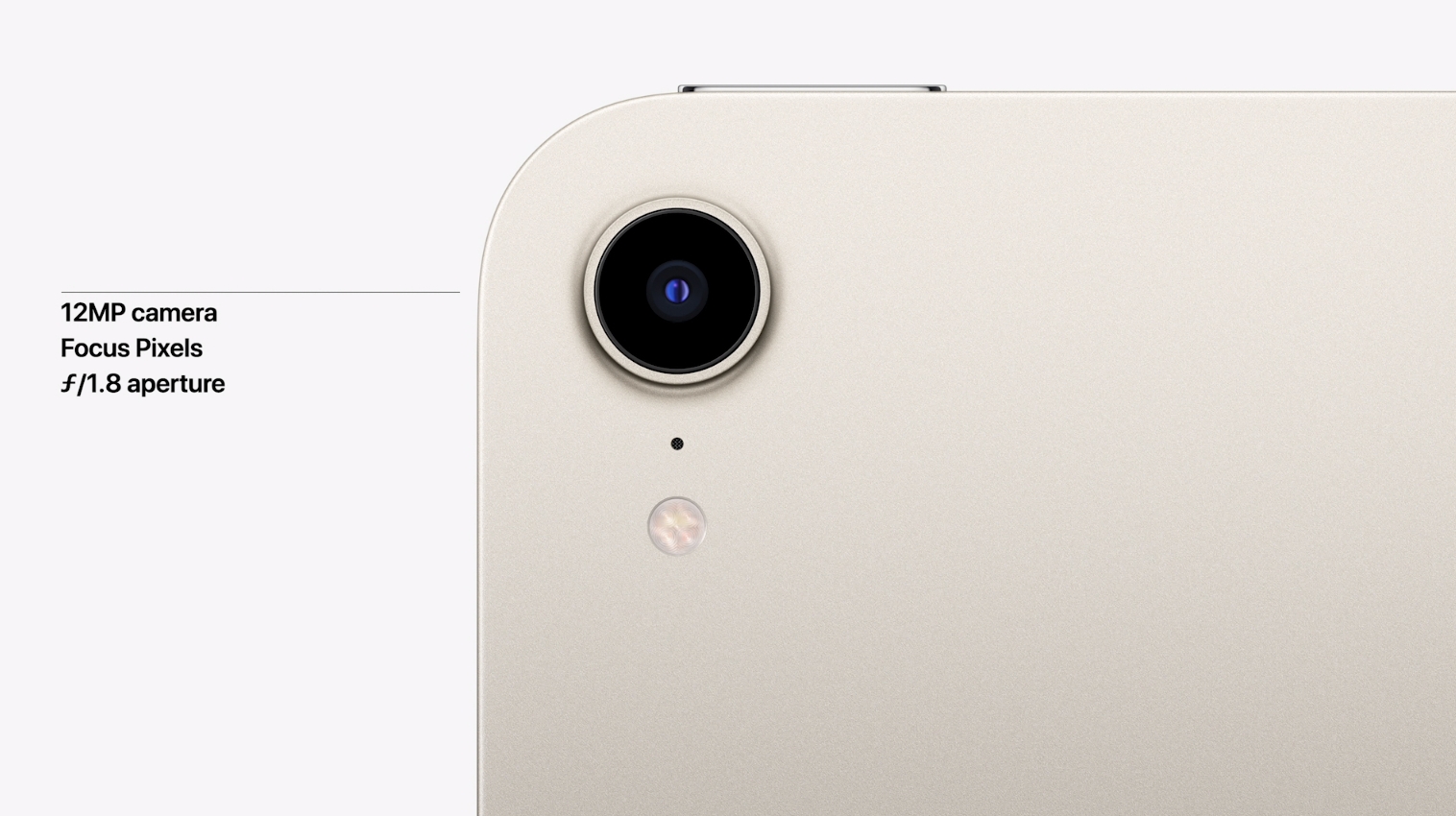
Better cameras, including Center Stage
The iPad mini 2021 doesn’t have any additional cameras, but its rear and front-facing shooters have both been improved. The main back camera has been upgraded from an 8MP f/2.4 camera that shoots 1080p at 30fps video in its predecessor to a 12MP f/1.8 capable of 4K video at up to 60fps.
The front-facing camera has been improved from a 7MP f/2.2 camera on the old iPad mini to a 12MP f/2.4 ultra-wide camera with a 122-degree field of view. Best of all, the camera has Center Stage, the auto-focusing feature that tracks subjects during video calls, which is more fun than you’d think.
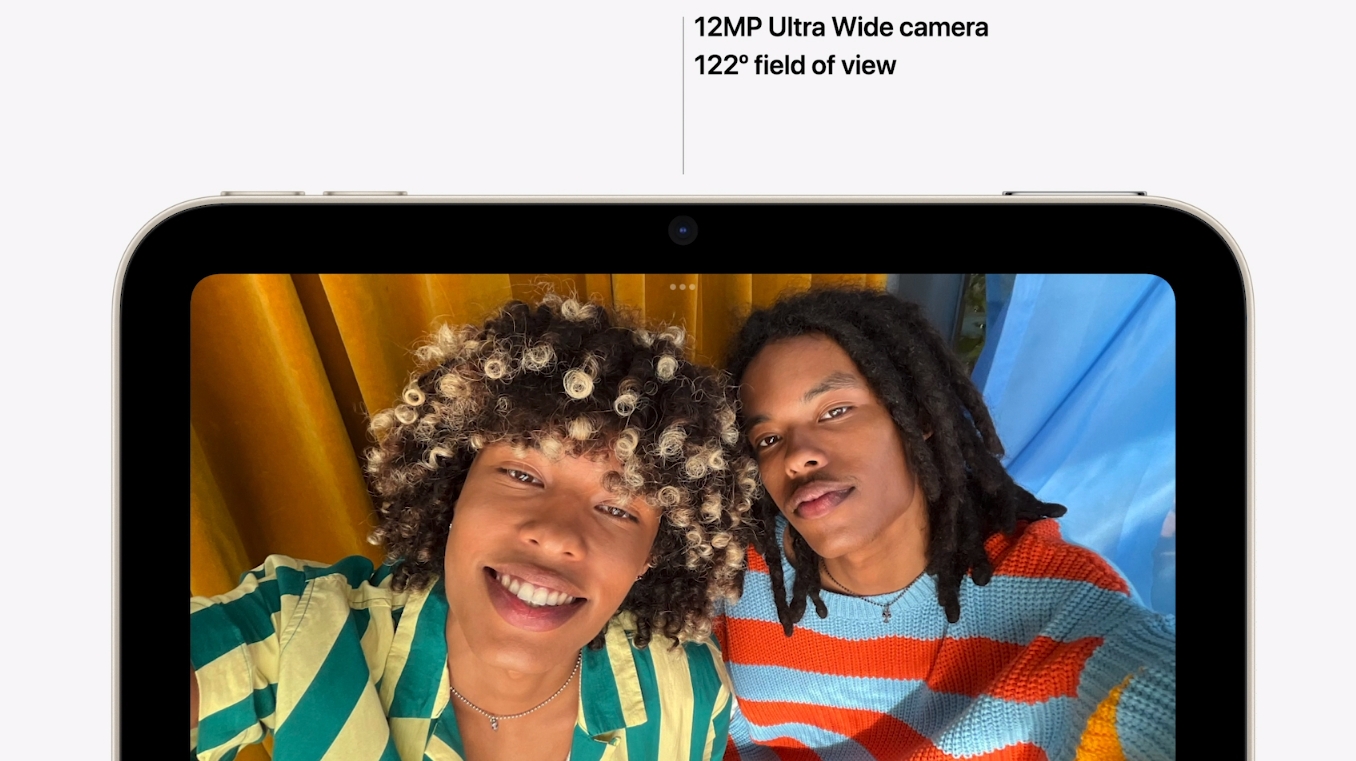
New and improved display
The squared-off edges and smaller bezels make room for the iPad mini 2021 to have an 8.3-inch display with a 77.4% screen-to-body ratio, slightly larger than its predecessor’s 7.9-inch screen with 70.6% screen-to-body ratio. The new tablet’s display is a Liquid Retina IPS LCD with a wide color gamut, improving on its predecessor with the best screen Apple puts out besides the iPad Pro 12.9-inch model’s Mini LED display.
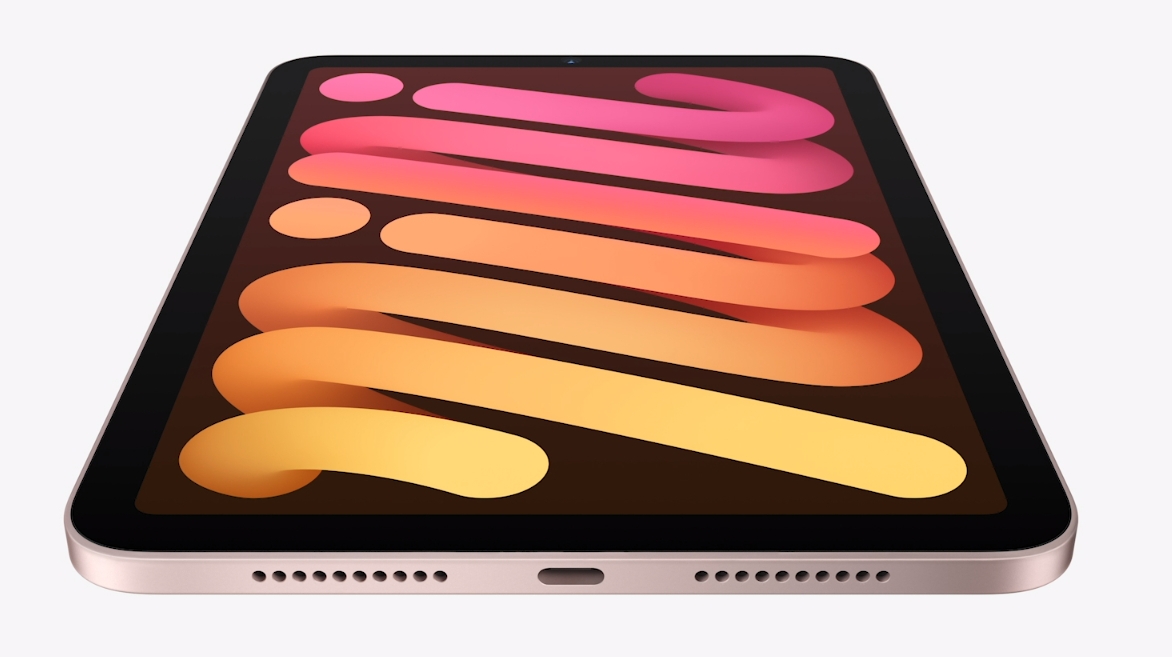
Top specs
The iPad mini 2021 packs an A15 Bionic chipset, the same silicon that’s in the brand-new iPhone 13 phones. Apple’s tablets don’t usually pack the latest chips, sometimes owing to their irregular releases long before or after the year’s iPhones (where the new A-series silicon always debut).
Granted, the A15 Bionic is no M1 chip, which comes in the iPad Pro 2021 models, but the iPad mini 2021’s silicon is based on the same architecture and we expect its performance to be better than the A14 (and comparable Snapdragon/Exynos chipsets, for that matter). While the 64GB / 256GB non-expandable storage isn’t great, the iPad mini 2021 is still a powerful yet tiny tablet.
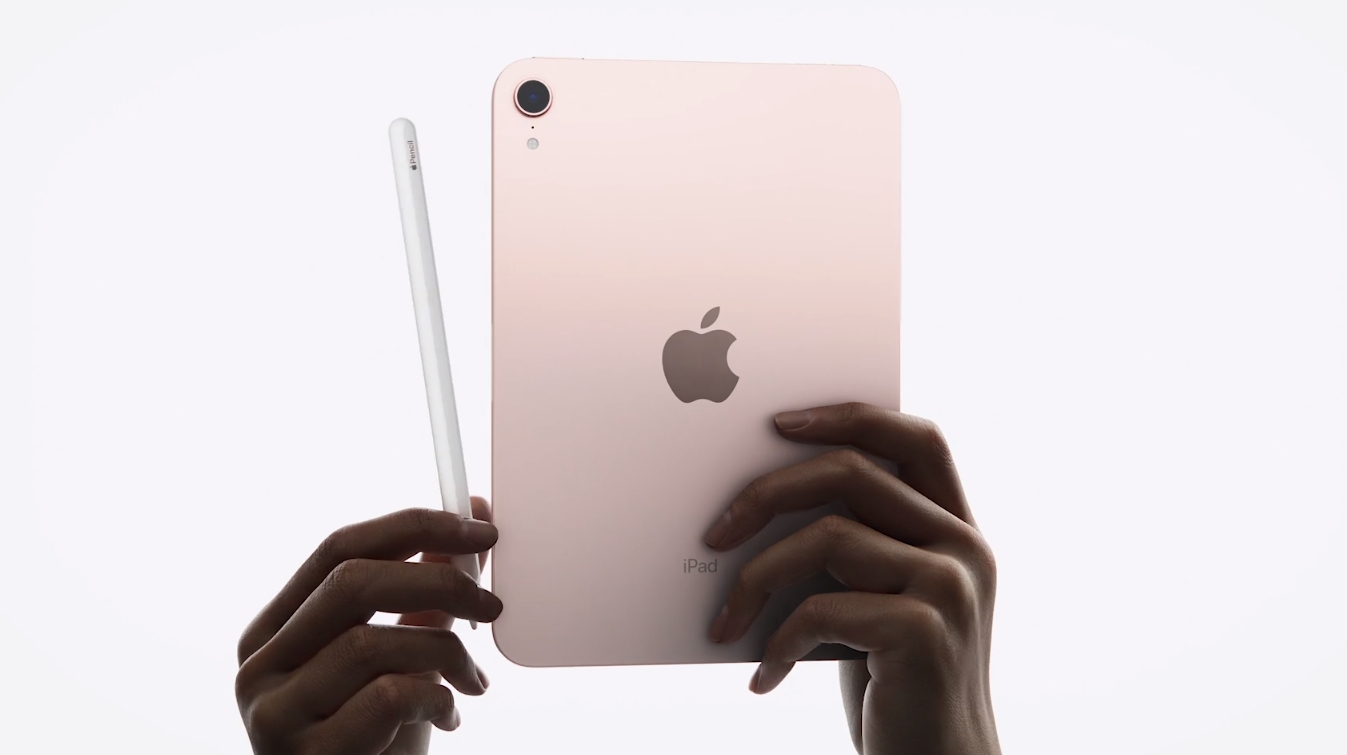
5G connectivity
The iPad mini 2021 can connect to 5G, letting it tap into the still-nascent advanced networks that carriers are still building out. That means speedier downloads and uploads for users who buy the pricier versions of the tablets.
Sure, the iPad mini 2021 can’t connect to the ultra-fast mmWave 5G – it’s sub-6 5G only, according to PC Mag’s Sascha Segan – but carriers are expanding sub-6 networks for wider coverage than the few-
- Apple event live blog: recap of the iPhone 13 launch event as it happened
David is now a mobile reporter at Cnet. Formerly Mobile Editor, US for TechRadar, he covered phones, tablets, and wearables. He still thinks the iPhone 4 is the best-looking smartphone ever made. He's most interested in technology, gaming and culture – and where they overlap and change our lives. His current beat explores how our on-the-go existence is affected by new gadgets, carrier coverage expansions, and corporate strategy shifts.
